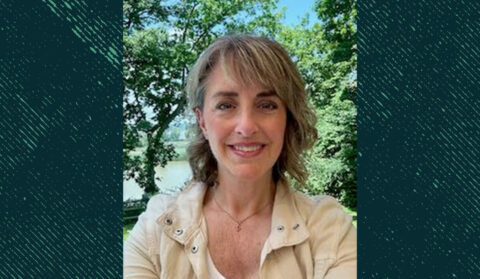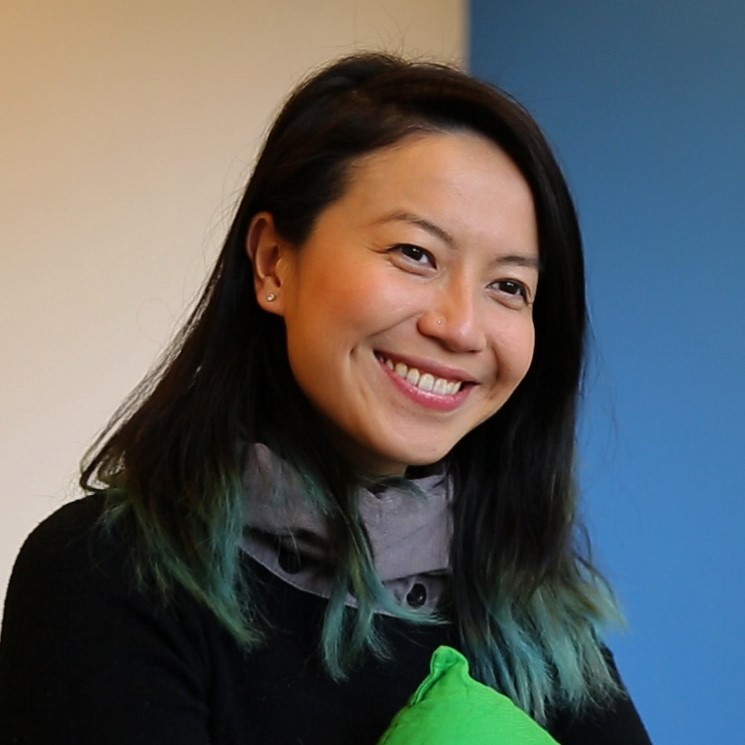Clinical Mental Health Counseling, Art Therapy Concentration
Empower expression to face life's challenges.
The Master of Arts in Clinical Mental Health Counseling, Art Therapy concentration expands upon your capability to improve the lives of others. Employing a social justice lens, we prepare graduates to attend to issues of race, equity, diversity, and inclusion in their work with clients. By pairing comprehensive clinical training with a strong theoretical framework, you will be uniquely positioned to leverage art therapy in a clinical mental health setting. Through knowledge, experience, and practice you will empower your clients to express themselves verbally and through visual art in order to treat a multitude of developmental, emotional, psychological, and medical challenges.
This degree is offered by Antioch University's New England Campus.
Program Overview
By completing Antioch’s Master of Arts program in Clinical Mental Health Counseling, Art Therapy Concentration you will receive comprehensive clinical training, making it one of the few online degree programs in the U.S. featuring both art therapy and clinical mental health counseling competencies within a social justice lens. The learning experience incorporates cultural diversity and social responsibility, giving Antioch a unique edge over other graduate schools in psychology. Antioch University has held accreditation by the Higher Learning Commission continuously since 1927. The Master of Arts in Clinical Mental Health Counseling, Art Therapy Concentration is accredited by CACREP, The Council for Accreditation of Counseling and Related Educational Programs. The Master of Arts in Clinical Mental Health Counseling, Art Therapy Concentration is accredited by the Commission on Accreditation of Allied Health Education Programs (www.caahep.org) upon the recommendation of The Accreditation Council for Art Therapy Education.
Licensure
Graduates of the CMHC program may apply for professional credentials recognizing their level of training and experience. Credentials may be granted by national professional boards/organizations or by state regulatory boards. The CMHC program recognizes the importance of licensure and certification for professional practice. The legislature in each state establishes the criteria for licensure and an appointed board determines if an individual's education and experience meet their standards.
The Clinical Mental Health Counseling Department has designed its programs to be consistent with the standards of the representative professional organizations. Individual states, many of which base their legislation on professional organization's standards, vary as to specific coursework, number of hours of supervised practice, supervisor qualification, and other required criteria. While the department offers coursework and internships that allow students to put together a licensable portfolio, it cannot guarantee licensure. Students with any negative results on a criminal background check should inquire with the state board in advance to determine if the results of their background will hinder their ability to become licensed in their state. As graduates of a CACREP accredited program, students are eligible to obtain full certification as a National Certified Counselor (NCC) upon graduation after passing the National Counselor Exam offered in April of their final year and completing the required applications. See the NBCC website for information on this process.
Graduates self-reported pass rate on the NBCC exam is 80%. Students will learn about the steps to licensure for the state in which they plan to pursue licensure in the Professional Orientation and Ethics course, however, students are responsible for knowing the expectations of the state in which they plan to apply. Students should actively consult their state’s counseling board for the most recent information about professional licensure. Faculty are available to consult with students and the following websites are helpful when navigating the licensure process: National Board of Certified Counselors American Counseling Association American Mental Health Counseling Association American Association of State Counseling Boards.
Additional Licensure Information
To locate contact information, available licenses, and required examinations per State, visit the NBCC’s State Board Directory: http://www.nbcc.org/Search/StateBoardDirectory. For information on individual state requirements, see the NBCC State Licensure page
This program is designed to lead to state licensure.
Request Information
Additional Information
The Master of Arts in Clinical Mental Health Counseling, Art Therapy Concentration (CMHC) Program promotes the development of professional identity by encouraging an active and continuous examination of one’s self as an individual, one’s self as an art therapist and professional counselor, and one’s self as a social justice advocate. The program is devoted to training students from diverse backgrounds, endorsing the principles of social justice by confronting oppression and injustice, and working with underserved populations. Students are prepared, as art therapists and professional counselors, to work with individuals, groups, and social systems within a multicultural global community to promote mental health and well-being for all.
Antioch’s Master of Arts in Clinical Mental Health Counseling, Art Therapy Concentration offers you comprehensive clinical training for a career as a registered art therapist and licensed mental health counselor. With a focus on developing multicultural counseling competencies, you accomplish these goals through a combination of required coursework and supervised internships.
The Master of Arts in Clinical Mental Health Counseling, Art Therapy Concentration program is 66 credits and can be a full-time or part-time program with students entering in Fall. The fall cohort stays together as a rich and connected learning community. The Clinical Mental Health Counseling with Art Therapy Concentration typically takes full-time students three years (3) to complete, and part-time students typically take four (4) years to complete. Students who enroll in the online program participate in three (3) separate week-long face-to-face clinical intensive residencies.
The academic and experiential requirements for the Master of Arts in Clinical Mental Health Counseling, Art Therapy Concentration are a mix of Art Therapy courses and Clinical Mental Health Counseling courses and include Art Therapy Courses (18-semester credits).
Please see the course catalog for more details
Program requirements and course offerings are subject to change.
Practicum introduces you to work in the field with a minimum of 100 hours of service at a clinical site, including a minimum of 40 hours working directly with clients. You will learn agency policies and the role and responsibility of the mental health counselor. You spend approximately 7 to 10 hours a week in practicum for at least one semester. Before beginning, practicum students must pass a candidacy review assessing their readiness to begin supervised fieldwork. Following practicum, there are three internship semesters. These may continue at the same site as the practicum or take place at a new site. You spend approximately 15 hours a week at your clinical site and provide approximately 250 hours of service each semester, including approximately 120 hours of direct service to clients during each of these internship semesters. Students are required to acquire a total of 700 internship hours. State requirements for pre-degree internship hours vary. Review your state requirements for more information. All students incorporate an art therapy internship in a professional setting. This experience will enable you to practice the theoretical knowledge you acquire in the classroom as you develop your identity as an art therapist and clinical mental health counselor. Students complete their learning in a diverse variety of clinical settings. There are many internship possibilities at community agencies, residential facilities, shelters, in-patient psychiatric hospitals, college counseling centers, city/state social service agencies, and more. The Practicum and Internship Coordinator will assist you in the process of matching your interests with potential sites in the community. Students are responsible for securing their own practicum and internship sites.
- Professional Dispositions: From admission through exit, students will demonstrate the attitudes, characteristics, and behaviors defined by the program as characteristic of exemplar counseling professionals.
- Ethical Practice: Students will demonstrate principles and standards of professional ethics in counseling and ethical decision-making informed by social justice.
- Social and Cultural Diversity: Identify strategies needed to address institutional and social barriers that impede access, equity, well-being, and success for clients.
- Human Growth and Development: Students will demonstrate knowledge of lifespan development and the capacity to integrate knowledge of developmental theory into practice.
- Career Development: Identify career development strategies that incorporate a focus on social justice and advocacy.
- Counseling and Helping Relationships: Demonstrate an understanding of theories of counseling and development of case conceptualizations and treatment plans that are underpinned by social justice
- Group Counseling and Group Work: Integrate into their practice of MHC the awareness of the influence of social and cultural contexts on groups
- Assessment and Testing: Students will demonstrate a broad understanding of different types of assessments, the selection and use of assessment tools, client assessment and diagnosis, trauma assessment, and the assessment of self-inflicted harm and danger to others.
- Research and Program Evaluation: Demonstrate and apply their professional identity as a clinical mental health counselor through an individual philosophy of practice grounded in critical analysis and research and interpretation.
- Clinical Mental Health Counseling Specialty Area: Clinical Mental Health Counseling students will demonstrate an understanding of foundational knowledge, demonstration of competence in clinical mental health practice, knowledge of social justice issues, and a focus on wellness.
Student learning outcomes highlight knowledge, skills and affective/behaviors critical to successful entry-level job performance of an Art Therapy program graduate. Achievement of learning outcomes upon completion of the program is demonstrated by a graduate’s knowledge and ability to:
- Sustain and demonstrate ethical principles and standards of professional codes of practice informed by social justice as they apply to clinical practice, communities, and self.
- Actively engage in self-care, reflective art practices, creative endeavors, and cultivate supportive communities that contribute to counselor and art therapist wellness and the well being of others.
- Promote and delineate the therapeutic benefits of art processes and media, approaches and interventions, and their applicability to the treatment process for individuals, groups, and families.
- Apply principles of intersectionality, anti-oppression, trauma-informed care, and social justice when conceptualizing client development, therapeutic relationship, assessment, treatment approach, and intervention for art therapy and psychotherapy.
- Articulate foundational beliefs, values, professional dispositions, social movements, historical cultural events, and theories that underpin counseling, psychotherapy, and art therapy professional practice.
- Display a robust interest in continued education, research, professional development, supervision, and evidence-based interventions to inform counseling, psychotherapy, and art therapy practice, strengthen professional identity, and contribute meaningfully to the profession.
The CMHC, Art Therapy Concentration Program prepares graduates in alignment with the Standards of the (CAAHEP) Commission on Accreditation of Allied Health Educational Programs Our program goals are in agreement with ACATE requirements and Antioch University policies and include the preparation of competent entry-level Art Therapists in the cognitive (knowledge), psychomotor (skills), and affective (behavior) learning domains, and the following program goals.
- To train practitioners who demonstrate the ability to apply ethical principles and professional codes of conduct in all aspects of clinical practice, demonstrating an understanding of how ethics inform their decision-making.
- To cultivate practitioners who value and sustain personal reflective art practices that strengthen a connection to the self, the creative process, to others, and informs professional practice.
- To instruct practitioners who display experiential competency and knowledge in offering art materials and directives as well as a high level of understanding of the creative process and its role in therapy and apply this understanding in their therapeutic relationships with diverse individuals, groups, couples, and families, effectively integrating theory into their practice.
- To educate practitioners who establish therapeutic relationships, express empathy, and demonstrate the ability to analyze client needs and apply appropriate assessments and treatment plans, ensuring that they can effectively assess problems, diagnose, and provide specific interventions within a social justice framework.
- To prepare practitioners who possess a strong knowledge and understanding of art therapy, artistic, and human development across the lifespan, counseling, and psychological theories with attention to trauma-informed care, intersectionality, and cultural humility that promotes skills to tailor their therapeutic approaches effectively.
- To develop practitioners who exhibit their capacity to evaluate existing art therapy practices, synthesize knowledge, and produce innovative projects or theses that contribute to the field of art therapy and reflect personal and professional growth.
The Bureau of Labor Statistics projects a strong need for mental health counselors. Counseling is projected as one of the faster growing mental health professions — increasing over the next 7-10 years. Graduates will have the knowledge, skills, and professional disposition required to function as a professional art therapist and as a clinical mental health counselor. They will be prepared for employment in a variety of settings and able to meet licensure standards as mental health counselors, through education in a CACREP accredited program and will meet registration and certification requirements as an art therapist through a CAAHEP accredited program.
Accreditation
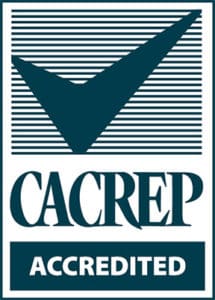

The Antioch CMHC, Art Therapy Concentration Program is accredited by the Commission on Accreditation of Allied Health Education Programs (www.caahep.org) upon the recommendation of The Accreditation Council for Art Therapy Education.
Antioch’s Art Therapy Concentration Program is listed on the CAAHEP website.
The American Art Therapy Association Announces Program Accreditation
Faculty Spotlights
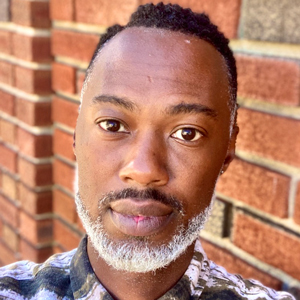
Sean Plunkett, MPS, ATR-BC
Affiliate Faculty

Haley Fox, PhD
Affiliate Faculty
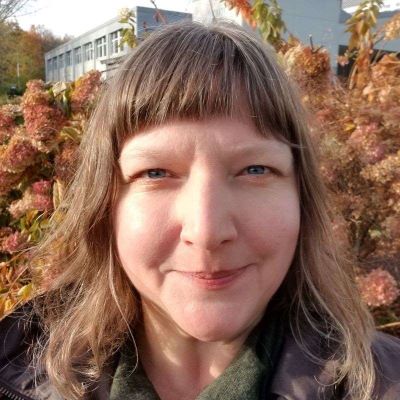
Amy Morrison, PhD, LMHC, ATR-BC
Program Director
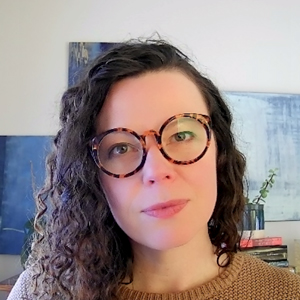
Ashley Hartman, PhD, LCAT, LPC, LMHC, ATR-BC
Clinical Faculty
Admissions / Cost / Aid
Deadlines
| Program | Term | Priority Deadline | Deadline |
|---|---|---|---|
| MA in Clinical Mental Health Counseling with Art Therapy | Fall | April 1 | July 1 |
Admission
The Master of Arts in Clinical Mental Health Counseling, Art Therapy Concentration program values diversity and encourages students of all backgrounds to apply for admission to the program. The faculty strive to create and support an inclusive learning community that meets the different learning styles of students admitted to the program. Students are encouraged to foster relationships with their peers through class discussions and small group activities.
How to Apply
- Completed online admissions application.
- A Bachelor’s degree from a regionally accredited institution is required. Submit official transcripts from ALL colleges/universities you have attended to the Admissions Office. Transcript evaluations are required for all coursework completed outside of the U.S. or Canada (except Quebec). See Transcript Evaluation section on International Students webpage for details.
- email transcripts to [email protected], or
- mail to: Office of Admissions Antioch University New England 40 Avon Street Keene NH 03431-3516
- OPTIONAL: Two letters of recommendation from people who are in a position to evaluate your professional (e.g., supervisor, colleague) or academic (e.g., faculty) work. The person making the recommendation may not be related to you.
- Art Portfolio 20 artworks; include the following information:
- Title
- Date of completion
- Materials used
- Dimensions
- Your portfolio can be submitted as a PDF document, or a link to a website that contains your portfolio. Your portfolio may include drawing, sketching, painting, sculpture, clay work, collage, assemblage, installations, photography, and digital media including digital drawing, video, and animation among others. This is an opportunity to demonstrate competency in a variety of two and three-dimensional media and gives us a sense of your artist identity.
- Completion of 6-semester credits OR 4 quarter credits that demonstrate foundational knowledge of psychology and related fields, as pertaining to human development, and varying perspectives in psychology including related disciplines.
- Completion of 27 quarter OR 18-semester credits in Art. Art courses in both 2D and 3D art should be completed, this includes: drawing, painting, clay work, sculpture, mixed media, and digital media, among others.
- Admission Essay: Submit a typewritten, double-spaced, one to two-page (between 250 and 500 words) response for each question, and clearly title your response for each question.
- Essay Questions:
- We are curious about your previous experiences (e.g., personal, professional, and academic) and would like to know how these experiences have led you toward the choice to apply to the Master of Arts in Clinical Mental Health Counseling, Art Therapy Concentration at Antioch University. Please describe a few of those fundamental experiences.
- The Master of Arts in Clinical Mental Health Counseling, Art Therapy Concentration program is both academically and emotionally rigorous. What challenges, if any, do you foresee encountering during your studies? What forms of support will you use to meet those challenges?
- Antioch University and Master of Arts in Clinical Mental Health Counseling, Art Therapy Concentration program are committed to preparing professional counselors to be culturally competent and become advocates for social, economic, and environmental justice. How does social justice and becoming culturally competent align with your interest in becoming a professional counselor and art therapist?
- What are your professional goals in relation to the Master of Arts in Clinical Mental Health Counseling, Art Therapy Concentration program, and how will this program specifically help you to reach those goals?
- Essay Questions:
- A Recorded video that addresses your strengths and concerns regarding online learning. The video should be 5 minutes maximum.
- International Students have additional admission requirements. See the International Students page for details.
- Select applicants may be invited to participate in a group interview with faculty.
- Transfer students are encouraged to apply and to speak with an admissions counselor. The Program Director evaluates an applicant’s transcripts for possible transfer credits.
Cost
| Department/Program Name | Tuition Cost per Credit | Total Program Credits |
|---|---|---|
| CLINICAL MENTAL HEALTH COUNSELING | ||
| Degrees: | ||
| Clinical Mental Health Counseling, MA *with careful course selection a certificate in Trauma Counseling OR Addictions counseling is possible within the CMHC degree requirements | $944 | 60 |
| Clinical Mental Health Counseling, MA (Online) *with careful course selection a certificate in Trauma Counseling OR Addictions counseling is possible within the CMHC degree requirements | $840 | 60 |
| Art Therapy and Clinical Mental Health Counseling, MA (online) | $840 | 66 |
| Certificates (if pursued as an independent credential): | ||
| Certificate in Clinical Mental Health Counseling, Addictions Counseling | $600 | 12 |
| Certificate in Clinical Mental Health Counseling, Trauma Counseling | $600 | 9 |
| Clinical Mental Health Counseling, Post-Master’s Respecialization Certificate | $840 | Variable (9-15) |
| MA in School Counseling | $840 | 60 |
| Certificate in School Counseling | $840 | 18 |
| Art Therapy Residency | ||
| View the Cost of Attendance Components | ||

Start your Antioch Journey
Take your next step - talk to our admissions team to find the right program for you.

